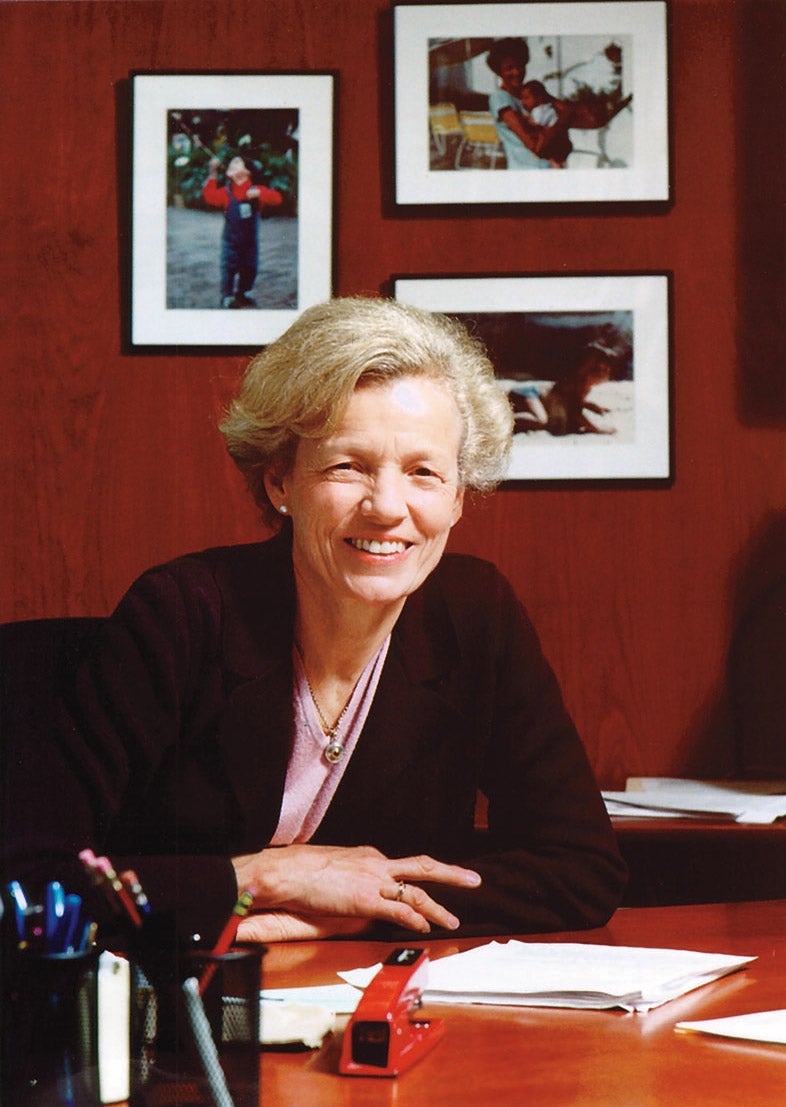The following op-ed, co-written by HLS Professor Elizabeth Bartholet ’65 and Paulo Barrozo S.J.D. ’09, an assistant professor of law at Boston College, appeared Jan. 21, 2010 on NPR.org. Bartholet, the director of the Child Advocacy Program at HLS, also appeared in a two-part interview on France 24’s International News Program, debating the issue of “Haiti’s Adopted Children” with Alyson Eynon, Emergency Protection Advisor at Save the Children UK. In November, she testified on international adoption policies before the Inter-American Commission on Human Rights.
Amid Disaster, Haitian Orphans Find Homes
Elizabeth Bartholet and Paulo Barrozo
Authorities in Haiti and the United States are to be applauded for easing restrictions on international adoption to permit some children to escape their dire circumstances. The children involved were almost all in the adoptive process, but that process often takes months and even years. Some of the children had apparently not yet been freed for adoption. They will now live in safety while the investigation proceeds into whether they should be placed in adoption or whether birth parents with whom they can live are located. The fate of thousands of other Haitian children depends on continued cooperation between the authorities to allow them to be removed to safety abroad for purposes of such investigation. For most, international adoption will provide the only possibility for a family.
What is sad is that it takes a disaster of such proportions, and a country like Haiti which has been usually open to international adoption, to give a relative handful of the world’s unparented children the chance to grow up in nurturing families. Millions of children are living in institutions throughout the world in conditions that destroy lives and, for those who survive, destroy the potential for a good life. Restrictive adoption policies prevent these children from being placed outside their country of origin even when that is the only place adoptive parents can be found. Since 2004, such policies have resulted in a drop in the number of international adoptions by 50%. Haiti, by contrast, has sent a significant number of children abroad for adoption every year since 2004, and in 2009 ranked eighth on the list of the countries sending the largest number of children to the U.S. Other countries suffering comparable disasters, like those devastated by the Asian tsunami, often respond to the pressures from UNICEF and others to prohibit international adoption in favor of keeping children in-country.
The current cooperation between Haiti and the United States shows how international adoption can be made to work to save children from humanitarian crisis. But all should recognize the need similarly to address the invisible but all-too-real permanent humanitarian crisis afflicting unparented children worldwide.
We recently presented a case to the Inter-American Commission on Human Rights contending that basic human rights principles give unparented children who cannot be raised by their birth parents the right to grow up in a nurturing home, whether in their country of origin or abroad. We submitted evidence on the devastating harm caused by institutional care, and the importance of placing unparented children with adoptive parents as early in life as possible. In the U.S. the Multiethnic Placement Act now bans any consideration of race in adoptive placement, eliminating race-matching policies which previously delayed and denied adoption for black children. That Act and Haiti’s sterling example should point the way for the world, enabling increasing numbers of children to escape from life-destroying conditions to the arms of loving parents, regardless of color and country.
